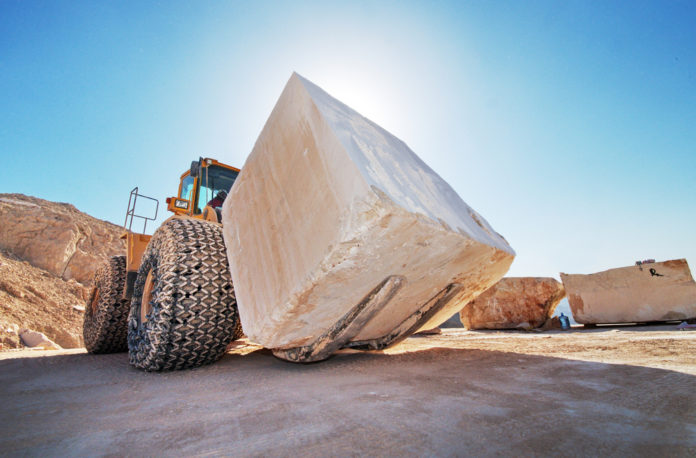Cross-motions for summary judgment on claim seeking costs incurred as a result of an alleged contract change are denied. The contract required the claimant to use a certain type of stone when resurfacing a jetty. The government rejected the stone proposed by the claimant. The claimant therefore reshaped the stone to satisfy the government. The claimant asserted that by rejecting the proposed and requiring reshaping, the government changed the contract. The government argued it did not change the contract, because the claimant had effectively volunteered to shape the stone. The board found that factual issues concerning the suitability and availability of the proposed stone precluded both parties’ motions for summary judgment.
The Army Corps of Engineers awarded Trade West Construction a contract to replace armor stone on a jetty in North Carolina. The contract required Trade West to obtain government approval for the source of stone used, and it permitted the government to reject stone that did not meet contract requirements. The contract required use of “blocky and angular” stones as well as stone of “various sizes and shapes.”
The Corps initially approved Trade West’s use of Fountain Quarry as a source of stones. But the production of stones from Fountain Quarry slowed, so Trade West asked the government to approve stones from another source, Salisbury Quarry. Whereas Fountain Quarry blasted the stones resulting in stones of various sizes, Salisbury Quarry cut their stone, resulting in relatively uniform blocks. The Corps did not approve the stones from Salisbury Quarry because they did not vary in size and it would be more difficult to place them so they would interlock with the existing stones on the jetty.
Trade West believed the block stones from Salisbury quarry satisfied the contract’s requirement. But Trade West proposed to shape the Salisbury stones to make them more jagged. The Corps approved the use of the shaped stones.
Following completion of the work, Trade West submitted a claim, seeking over $300,000 for the work performed in shaping the Salisbury stones. Trade West contended that by requiring shaping of the stones, the Corps had changed the contract. The Corps denied the claim. Trade West appealed to the ASBCA. Both parties moved for summary judgment.
Trade West that the Corps had wrongly rejected the use of unshaped Salisbury stone, and that the stone as initially proposed satisfied the contract requirements. The board, however, found that this issue was not amenable to summary judgment. As noted, the contract required “blocky and angular” stone, but it also required that the stones had to be various size and shapes so they could interlock. While the Salisbury stones were undoubtedly blocky and angular, there were material issues of fact as to whether they varied in size and shape.
The government argued that Trade West’s initial choice of the Fountain Quarry stone indicated that it understood the correct interpretation of the contract and they type of varying stones that were required. The board found that while evidence of the Trade West’s intent may be entitled to great weight, the factual dispute concerning whether the Salisbury stones satisfied the contract requirement had to first be addressed first.
Trade West contended that the government changed the contract by requiring the company to reshape the Salisbury stone. The government argued that it never directed Trade West to shape the stone. Instead, the Corps allowed Trade West to perform the shaping so it could use the stone. Again, the board found that the dispute raised factual issues. It was not clear whether the government’s rejection of the unshaped Salisbury stone implicitly required Trade West to shape the stone. For instance, there was as issue as to whether Trade West could have obtained varying shaped stones from another quarry.
Finally, the government argued the board should deny the appeal because Trade West had not given the government notice of the claim arising from the alleged change pursuant to the contract’s change clause. But the board noted that the government likely had constructive notice of the change. A contractor’s failure to provide the government with notice of a potential claim arising out of additional work does not bar the contractor’s claim where (1) the government was aware of the operative facts underlying the claim, and (2) the failure to provide notice did not prejudice the government.
Here, the contracting officer was aware of Trade West’s decision to shape the Salisbury stone as well as the costs of reshaping. Thus, the government had notice of the claim. Moreover, the board found that the government had not presented any evidence that it had prejudiced by the lack of notice. Indeed, the board noted, the government had not even raised the lack of notice in the final decision and thus likely waived it on appeal.
Trade West is represented by Karl Dix, Jr. and Lochlin B. Samples of Smith, Currie & Hancock LLP. The government is represented by Michael P. Goodman, David C. Brasfield, and Carl E. Pruitt of the Army Corps of Engineers.




